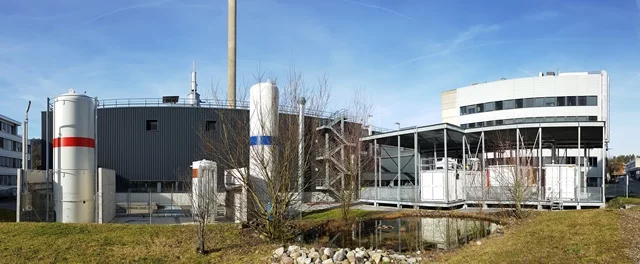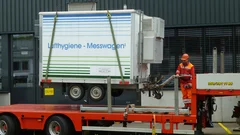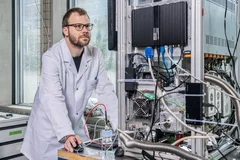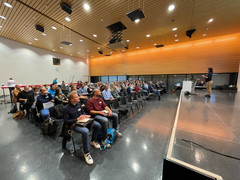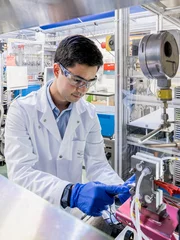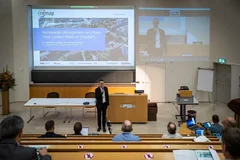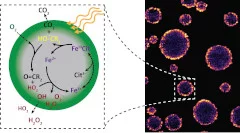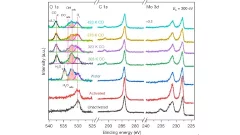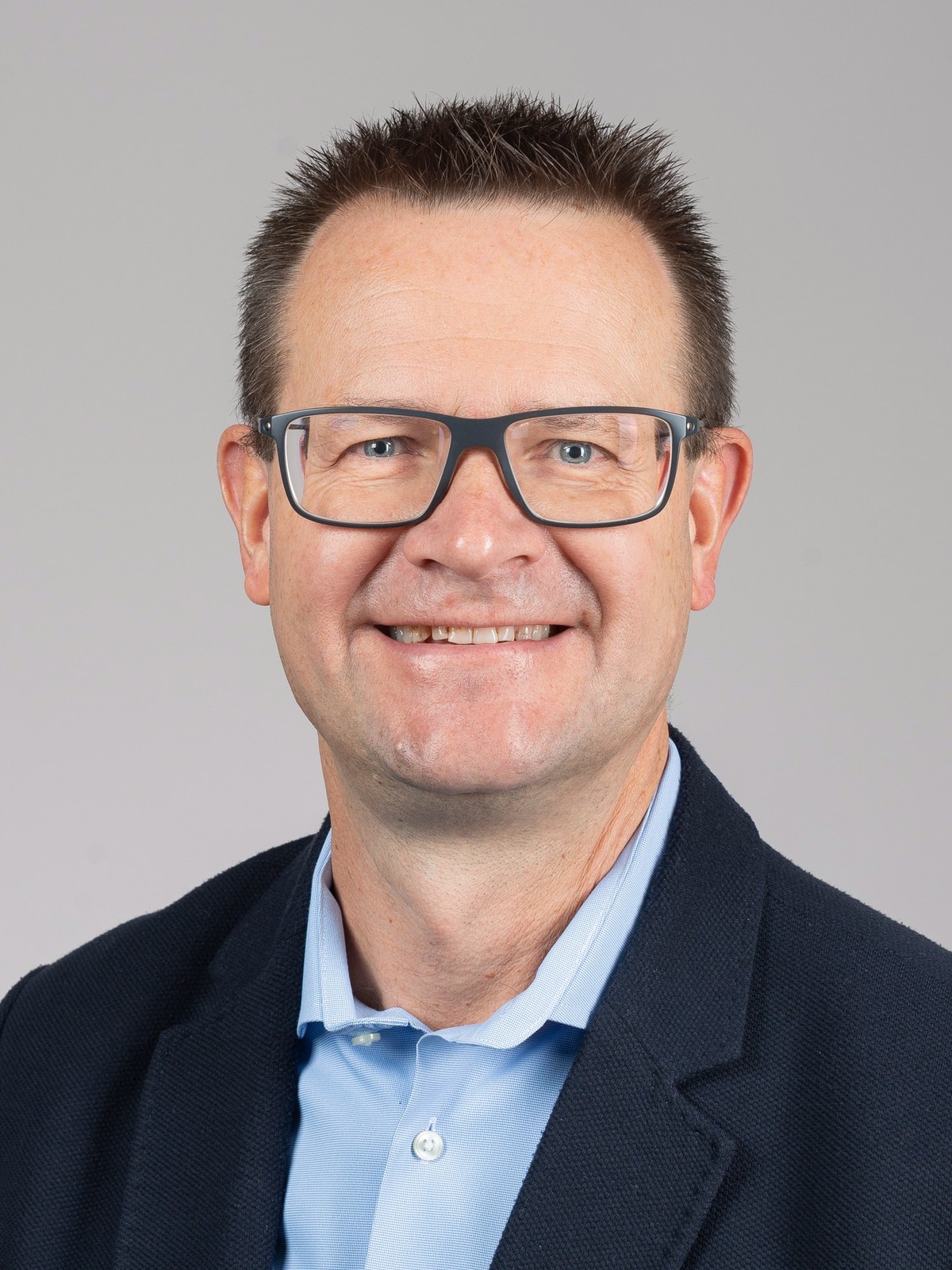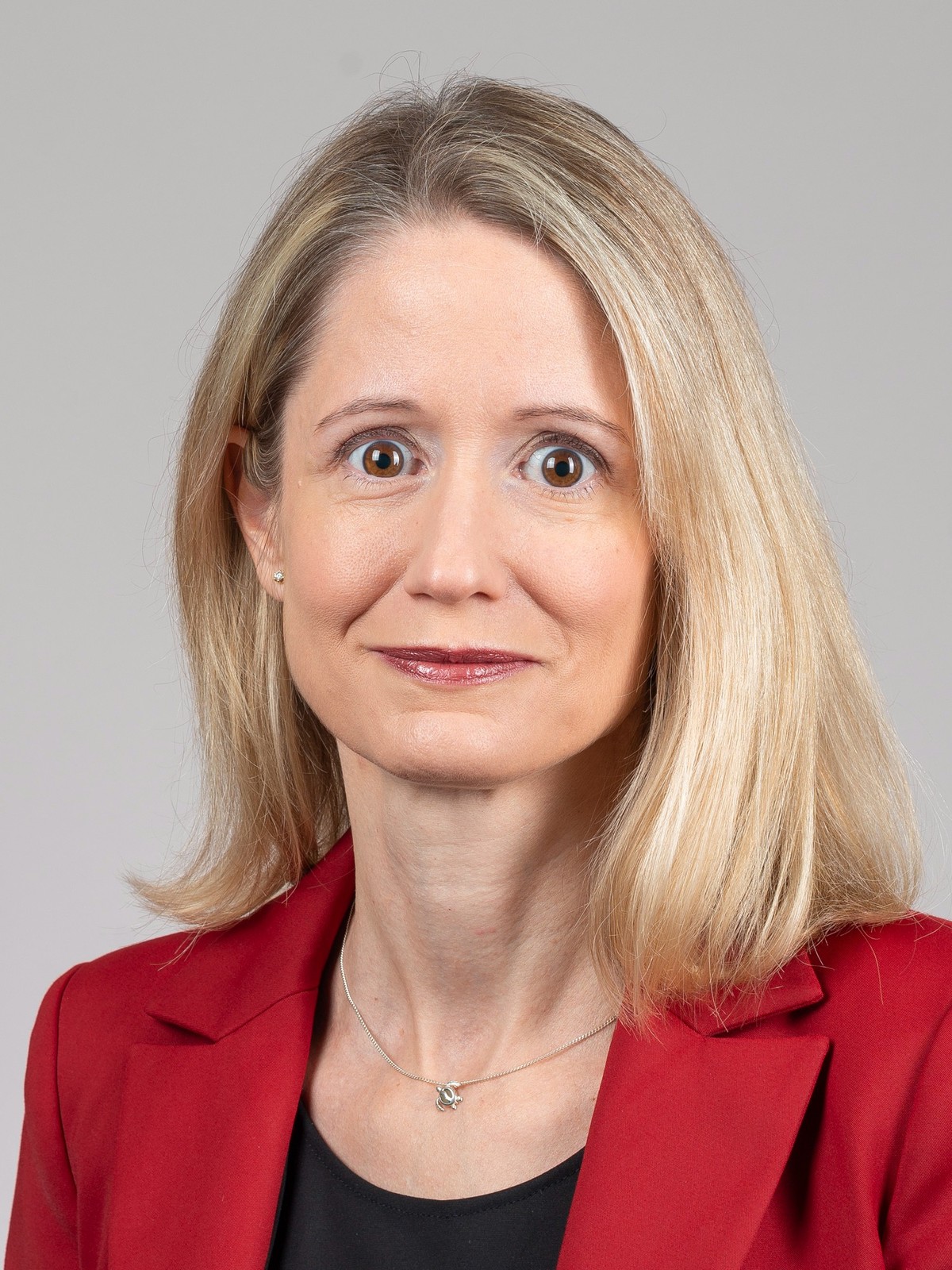Energy and Environment Research Division
Research at PSI comprises all aspects of human energy use, with the ultimate goal of promoting development towards a sustainable energy supply system. Technologies are being advanced for the utilization of renewable energy sources, low-loss energy storage, efficient conversion, and low emission energy use. Experimental and model-based assessment of these emissions forms the basis of a comprehensive assessment of economic, environmental and social consequences, for both present and future energy supply systems.
Division Head: Prof. Dr. Thomas Justus Schmidt
Energy Briefing Event 2023
The Energy and Environment Division of the Paul Scherrer Institut PSI successfully hosted their second Energy Briefing Event at the Zentrum Paul Klee in Bern. The event focused on the potentials and challenges associated with the production, regulation, and utilization of synthetic fuels. Representatives from WWF, Avenergy, PSI, and BAZL shared their expertise and insights on this topic.
A heartfelt appreciation goes out to Ulrich Koss (Metafuels), Theo Rindlisbacher (BAZL), Christian Bach (Empa), Thomas J. Schmidt (PSI), Thomas Häusler (WWF Switzerland), Daniel Hofer (Avenergy Suisse), and our moderator Stephan Lendi for their invaluable contributions and insightful perspectives.
Energy Briefing Event 2022
On June 28th, 2022, the Energy Divisions (ENE and NES) at PSI hosted their first Energy Briefing Event at the Kursaal in Bern. Knowledgeable voices from industry, research and government shared insights in a dialogue on the feasibility of the Net Zero goal and what next steps are required to achieve this collectively.
A big thank you to Daniela Decurtins (GazEnergy), Particia Sandmeier (Hitachi Energy), Martin Naef (ABB), Pascal Previdoli (BFE), Thomas Schmidt (PSI), Christian Verhoeven (GE), Peter Richner (Empa), Andreas Pautz (PSI) and our Moderator Stephan Lendi for their valuable contributions and insights!
Highlights & News
Take a deep breath. But how clean was the air?
The EU project, RI-URBANS, aims to improve air quality monitoring across Europe
Successful Ambizione Grant Applicant
Kaspar Dällenbach, Scientist at the Laboratory of Atmospheric Chemistry (LAC) at the Paul Scherrer Institute (PSI) was granted the Ambizione Grant 2020 with his project “Particulate air pollution sources in low-income megacities (PRESSING)”.
NET ZERO Day of the four RIs at Empa
Climate change is one of the biggest challenges humanity is facing. It requires an approach, in which competences and capacities in research are combined across Switzerland to develop solutions for a transformation of our society towards net zero CO2 emissions.
Successful Ambizione Grant Applicant
Alexander Muroyama, Postdoctoral Researcher at the Electrochemistry Laboratory (LEC) at the Paul Scherrer Institute has successfully applied for the Ambizione Grant 2020 with his project “A novel process for electrochemical direct-air capture of CO2”.
Successful Ambizione Grant applicant
Patrik Winiger, Research Grant Advisor and Project Manager at ETH Zurich, successfully applied for the Ambizione Grant 2020 with the project “Macromolecular Aerosols in the Cryosphere from the Arctic to the Alps – MACrAA”. The idea was developed together with the Laboratory for Atmospheric Chemistry (LAC) at PSI. The LAC is a global leader in aerosol analytics and source identification. They own and operate a unique laboratory infrastructure with various instruments and multiple aerosol simulation chambers available for researchers.
ReMaP – Current status of energy research
With its Energy Strategy 2050 Switzerland aims – beside other goals – to promote the use of domestic renewable energy and to develop the electricity power grid, which plays a decisive role in the upgrading of the system of electricity power supply. A lot of research needs to be done to achieve these ambitious goals. An important research project in this area is ReMaP and its status quo was presented at the Paul Scherrer Institute PSI on 28 September.
The ICE MEMORY program
As an international initiative, ICE MEMORY aims at collecting heritage ice cores from the world’s key endangered glaciers to store them under safe conditions and international governance in Antarctica for future generations of scientists.
Looking inside airborne particles for the chemistry responsible for their adverse health effects.
Chemical changes inside of breathable airborne particles can cause reactive oxygen species (ROS) and carbon centered radicals (CCRs) to form, which are harmful to our bodies and induce oxidative stress in lungs. Using X-ray spectromicroscopy at the PolLux beamline and mimicking the environmental and sunlit conditions aerosol particles experience in the atmosphere near the Earth Surface, it was recently found that highly viscous organic particles with low water content can attain high concentrations of ROS and CCRs that persist over long times. Natural particles like these will occur in ambient humidity below 60% and effectively trap ROS and CCRs inside that react when exposed to light.
XPS allows in situ investigation of the solid-gas interface during a catalytic reaction
Platinum isolated atoms and clusters supported on molybdenum carbide have been characterized in situ by means of photoelectron spectroscopy. The presence of both species is essential to favor the stability, so that the catalysts displays high metal-normalized turnover number of 4,300,000 moles of hydrogen per mole of platinum during the water gas shift reaction.
